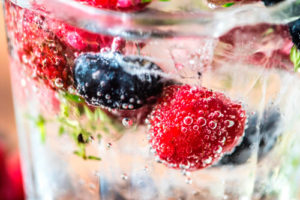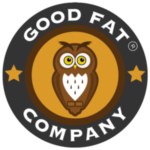The summer season brings many things.
As someone who was born in the “dog days of summer,” I think I have always gravitated toward the likes of the season. There are a few things to keep in mind with regards to green and healthful living in the peak of summer.
Two overarching areas to consider include:
Hydration & Nutrition
Summer provides an abundance of colorful and phytonutrient rich foods which helps our body’s combat adverse effects from excess inflammation. Each color in naturally grown whole foods provides certain nutritional benefit. One of the best resources for illustrating the interplay between plant colors and nutritional benefits is Dr. Deanna Minich (Ph.D.).
Adequate consumption and absorption of liquids are not only beneficial for avoiding unintended dehydration, it is also supportive for detoxification. Obviously, avoiding sugar-sweetened beverage options will also be optimal for overall health. I love to share infused water options with people in presentations and healthful living centered events. In summer, we have an abundance of fresh options to spruce up our water. A great resource for infused water options that I appreciate is from AllRecipes, Quench Your Thirst Beautifully With Flavor-Infused Water.

Photo credit: Wellness Stock Shop
Hydration extends beyond beverages. A lot of summer produce options, such as melons, cucumbers, and leafy greens, are water-rich. Boosting intake of water-rich foods will also be supportive. Also, relevant balance for intake of diuretic foods, which stimulate the kidneys, is worth consideration. Some mild diuretics, particularly coffee and black teas, can inadvertently be dehydrating.
Although these foods and beverages may have certain other benefits, they can also lead to dehydration if taken in excess. However, other diuretic foods can be quite supportive in hydration, such as lemons and fresh herbs. See this Healthline article, The 8 Best Natural Diuretics to Eat or Drink, for a few other evidence-based suggestions.

Photo credit: Photo by rawpixel on Unsplash
Environmental Exposures
As temperatures inch up, keep an eye on the air quality index (for a national map of the US, check out AirNow). On days or time frames in which levels are higher, activity outdoors may need to be limited. Exposure during these times can trigger elevated inflammation which can linger in the body.
There are ways to contribute to better outdoor air quality, particularly on hotter days, which includes avoiding the use of lawn mowers or other gas-powered equipment as well as limiting commutes via automobiles or carpooling. Energy conservation in the home and public settings can also help because it can lower heat created from buildings.

Photo credit: Photo by Ant Rozetsky on Unsplash
Moderate sun exposure can be good for increasing levels of vitamin D in the body, but extended time spent outdoors in summer may put us at risk. Sun protection may be necessary, but take a scan of the ingredients. The “cleaner beauty” segment of the skin care industry seems to be booming. Out of the options, one of my favorite go-to’s is Annmarie skin care. Their progressive approach to education really sets them apart. Here is a quick summary of sunscreen ingredients available from them.

Photo credit: Photo by Jon Flobrant on Unsplash
Avoiding insect bites is relevant for infection prevention not to mention simple peace of mind. However, most insect repellents pack a significant punch of synthetic chemicals, such as the gold standard DEET. Across current study data, the strength of evidence for the adverse effect to human and environmental health from DEET is not strong. However, there are concerning studies where excess application or concentration was used and cases of mortality as a result of ingesting DEET, particularly with children who have greater susceptibility to adverse toxin exposures. Therefore, remain mindful of this and follow product instructions carefully. According to a 2018 Consumer Reports review on the safety of DEET in insect repellent, there are also limits to available study data on pregnant women. There is less published research in support of other compounded agents for insect repellent.
My approach to insect repellent is to first take an assessment of risk, benefits and potential costs. This will vary based on geographic area and current circumstances, such as whether or not West Nile virus cases have been reported. Review articles such as a 2016 scientific publication Chemicals and Plant-based Insect Repellents: Efficacy, Safety, and Toxicity can help provide guidance. Also, the Environmental Working Group (EWG) recently published a 2018 Guide to Bug Repellents.
There are some natural alternatives to synthetic bug spray. A more obvious but often overlooked option is mosquito netting. For spray repellent, essential oil combinations present an option. The review article also points out that combining DEET with natural methods, such as oil of lemon eucalyptus, may provide further benefit against pesky insects such as ticks. EWG also supports the use of oil of lemon eucalyptus.
photos ——
Enjoy the likes of the season, be safe and healthful!
Ashley
Ashley runs a lifestyle health coaching service centered on evidence-based behavioral change and systematized approaches from integrative health services and healthcare. She includes functional health assessment tools that support setting more clear, realistic goals that are tailored to each client. She appreciates the products and mission of Good Fat Company due to the emphasis on whole-food, nutrition rich products without processed additives or fillers. Also, that the product line is applicable across dietary spectrums from vegan to paleo and most anywhere in between. Further information can be found at www.ashleylarnold.com.
References:
Diaz, J.H. (2016, Mar). Chemical and Plant-based Insect Repellents: Efficacy, Safety, and Toxicity. Wilderness & Environmental Medicine, 27(1), 153-163.
Environmental Working Group. (2018, Jul 17). EWG’s 2018 Guide to Bug Repellents. Retrieved from https://www.ewg.org/research/ewgs-guide-bug-repellents?utm_source=newsletter&utm_campaign=201808BugNews&utm_medium=email.
Gianni, A. ( ). 7 Health and Skin Damaging Sunblock and Sunscreen Ingredients. Retrieved from https://www.annmariegianni.com/7-health-and-skin-damaging-sunblock-and-sunscreen-ingredients/.
Greaves, V. (n.d). Quench Your Thirst Beautifully With Flavor-Infused Water. Retrieved from http://dish.allrecipes.com/fresh-ideas-for-making-infused-water/.
Interlandi, J. (2018, May 8). How Safe is Deet? Consumer Reports. Retrieved from https://www.consumerreports.org/insect-repellent/how-safe-is-deet-insect-repellent-safety/.
West, H. (2017, Sep 2). The 8 Best Natural Diuretics to Eat or Drink. Retrieved from https://www.healthline.com/nutrition/best-diuretic-foods-drinks.


